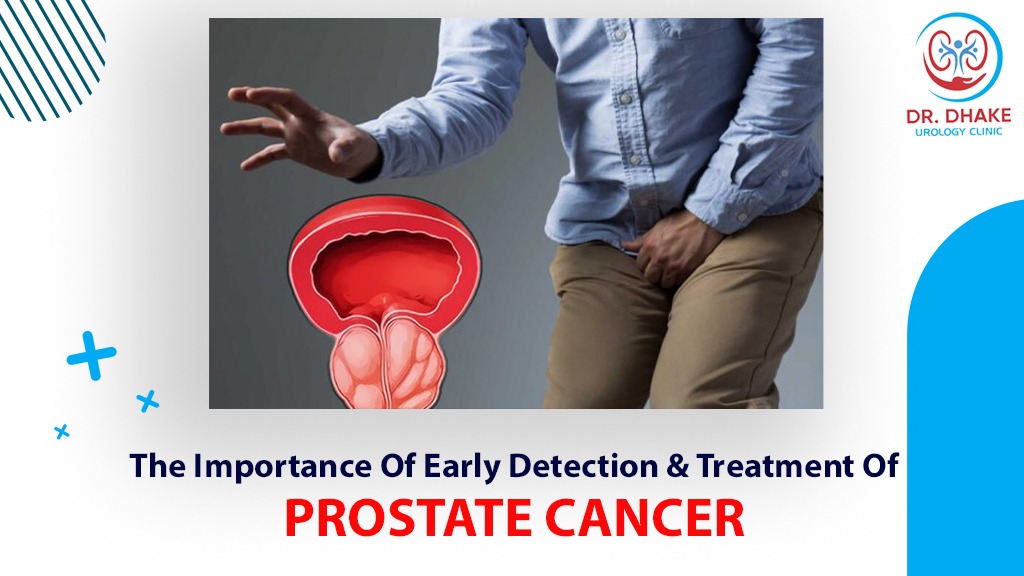
Prostate cancer is a common form of cancer that affects men and can have serious consequences if not detected and treated early. Early detection and treatment can help to prevent the progression of cancer, and increase the chances of survival. In this blog, we will explore the importance of early detection and treatment of prostate cancer.
The prostate is a gland that is located below the bladder in men and surrounds the urethra. It produces fluid that is part of semen and helps to transport sperm. Prostate cancer is the growth of abnormal cells within the prostate gland that can spread to other parts of the body if left untreated.
There are many risk factors that can increase the likelihood of developing prostate cancer, including age, family history, and race. While some men may not experience any symptoms in the early stages of prostate cancer, others may experience urinary symptoms, pain, or discomfort. In order to detect prostate cancer early, it is important for men to undergo regular screenings, such as prostate-specific antigen (PSA) tests and digital rectal exams (DREs).
Early detection of prostate cancer is crucial for effective treatment. If caught early, prostate cancer can be treated with surgery, radiation therapy, or a combination of both. In many cases, surgery to remove the prostate gland may be the best option, especially if the cancer is still contained within the gland. Radiation therapy can also be used to shrink cancer or slow its growth and may be used in combination with surgery. In some cases, hormone therapy may also be used to slow the growth of cancer.
Treating prostate cancer in its early stages can greatly increase a man’s chances of survival. Early treatment can also help to reduce the risk of long-term complications, such as incontinence and impotence. In addition, early detection and treatment can help to preserve the quality of life for men who have been diagnosed with prostate cancer.
In addition to regular screenings and early detection, there are lifestyle changes that men can make to help reduce their risk of developing prostate cancer. These include maintaining a healthy diet, exercising regularly, and not smoking. Drinking alcohol in moderation may also help to reduce the risk of developing prostate cancer.
In conclusion, early detection and treatment of prostate cancer is crucial for the successful treatment and management of the disease. Regular screenings and lifestyle changes can help to reduce the risk of developing prostate cancer, and early treatment can help to increase the chances of survival. If you are a man over the age of 50, or have a family history of prostate cancer, it is important to talk to your doctor about your risk and the best options for screening and treatment.




